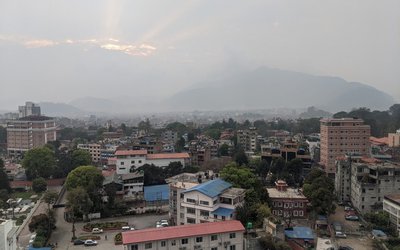
Teresa Cheng Yeuk-wah, Hong Kong secretary for justice, told the Global Times that, based on the understanding of the fourth item of the decision made by National People's Congress on May 28, the Department of Justice of Hong Kong and the Hong Kong Court will take the main responsibility for prosecution and judicial work after the national security law for the Hong Kong Special Administrative Region (SAR) is established.
But as national security affairs are under the central government's management, the possibility should not be ruled out that, under some special circumstances, the central government would reserve management jurisdiction over cases that severely damage national security.
Cheng noted that the Hong Kong regional government and the central government share a "mutual target" in safeguarding national security and the independence of the Hong Kong judiciary will be sustained, so the public and legal professions do not need to worry overly.
The latest draft approved by the NPC clarifies that the Hong Kong SAR should complete the system and mechanism to safeguard national security, strengthen law enforcement power and enhance law enforcement work to safeguard national security.
She said that this means that departments of law enforcement, prosecution and the judiciary should shoulder the main work of safeguarding national security according to the national security law and existing Hong Kong regional laws. For example, the Department of Justice will continue to take responsibility for prosecution and post-prosecution procedures of most national security cases and its work will not be interfered with from the outside.
As to the level of trial, Cheng deemed that if the suspects are Hong Kong residents and are arrested in Hong Kong, the cases, after the Department of Justice decides whether to initiate prosecution, should be handled by Hong Kong courts according to the independence between the national security law and the local judiciary.
"As far as I can see, we think that the Hong Kong judiciary still remains independent without any damage," Cheng said.
The Hong Kong Bar Association proposed that the National Security Law for Hong Kong should deal with the provisions in accordance with common law principles, which should be terminated after the Hong Kong SAR itself has made legislation for national security.
However, "national security should be under the central government's management," Cheng noted. Although most of the cases would be handled by the Hong Kong region, the central government would still reserve management power over a small number of special cases, according to Cheng.
The definition of the special cases has to wait for detailed clauses of the national security law for Hong Kong to be decided. But Cheng stressed that as long as the definition accords with the Constitution and the Basic Law, Hong Kong's judicial independence will be ensured, so there is no need for the public and legal professions in Hong Kong to be concerned.
She also stressed that, after the establishment of the national security law, the Department of Justice will try its best to deploy manpower to safeguard national security. "Whether the Department of Justice, or the Hong Kong SAR government, or possible institutes sent by the central government to Hong Kong, we all share one mutual target, which is to safeguard national security. We will carry out our duties separately to safeguard the national sovereignty unification and territorial integrity."
"It is impracticable and unreasonable to expect that everything in a national law, the National Security Law, will be exactly the same as what a statute in the Hong Kong SAR common law jurisdiction would be like," Cheng said.
There are a number of commonalities between the civil and common law systems in the mainland and the Hong Kong SAR, such as retrospectivity, presumption of innocence, burden of proof and standard of proof, she noted.
In the exclusive interview with the Global Times, the official further explained that the national security law for Hong Kong deals with provisions in accordance with principles of civil law, which does not mean there is a conflict with Hong Kong's existing common law system. "The provisions under the Hong Kong legal system are also embedded with civil law concepts," Cheng said.
Demands from some people that the national security law for Hong Kong should be in line with the principles and provisions of common law are a deliberate confusion of the legal system, the secretary for justice noted. Many other countries also implement civil laws such as France and Germany.
While the Hong Kong Police Force is mulling the establishment of a special unit for handling national security-relevant cases, Cheng said it was important not to "demonize" the special law enforcement department or speculate on investigation of related cases.
According to publicly released materials, China added contents of respect for human rights to the Constitution in 2004 when the country revised the Constitution. The current National Security Law of China also clarifies that law enforcement institutes shall not infringe the public's rights and have to apply legal and reasonable methods when they need to restrict the public's power.
"In fact, most of the countries in the world are statutory states. Only a minority of countries and regions, mainly Commonwealth countries and their previous colonies, use common law. But we would not say statutory countries like Germany and France [have legal defects]. Chinese legal principles and concepts are similar to those of Germany and France. So we should avoid the incorrect thinking that 'statute law' is problematic," Cheng said.
As to the establishment of special court and law enforcement departments for national security, Cheng said that there are existing special courts in Hong Kong, such as the commercial court.
"It is actually a good thing as the judges will only deal with one kind of cases, so they will grow more and more professional and better and better in grasping controversies, which is good for the development of law. So I do not think it is a big deal to set up an independent national security court. Rather, I think it is an idea that is worth considering."
When it comes to the nationality of judges on national security cases, Cheng said the situation of Hong Kong is very special. Judges dealing with national security affairs in most countries in the world must be citizens of their own countries. Therefore, if there is a nationality requirement for judges handling cases involving national security, they should "understand such expectations". She expressed her hope that the international common law and the "Basic Law" arrangements can be taken into account.
Source: Global Times
- Weather Forecast: Partly To Generally Cloudy Gandaki, Lumbini, Karnali And Sudur Pashchim Provinces
- Apr 18, 2024
- FNCCI President Dhakal Urges To Invest In Tourism Infrastructure
- Apr 17, 2024
- Halesi Mahadev Temple and Ram Nawami Festival
- Apr 17, 2024
- The Breakthrough Of The Nagdhunga Main Tunnel: Pride Of Country
- Apr 17, 2024
- Ram Nawami 2024: Importance And Significant For Hindus
- Apr 17, 2024
















